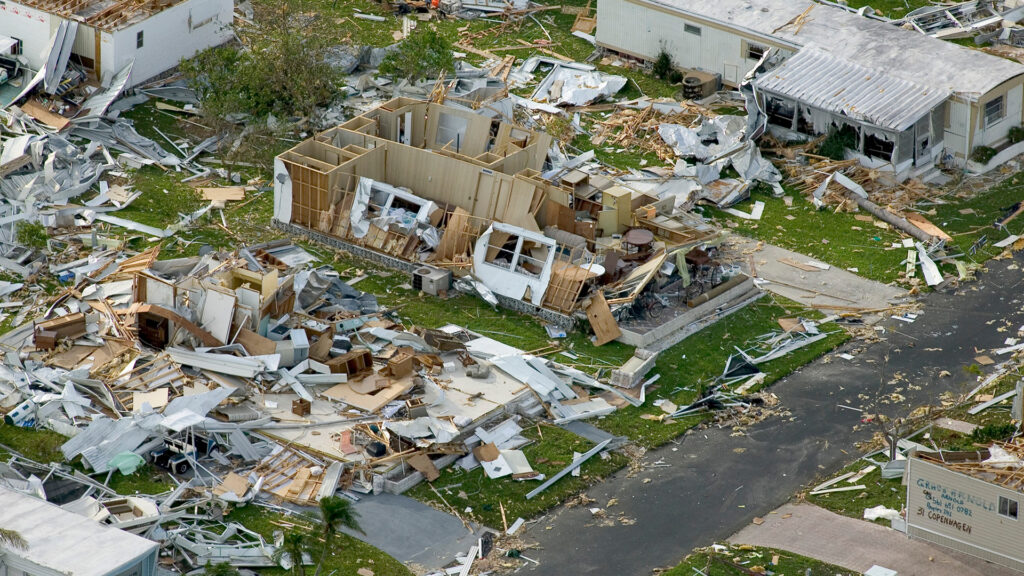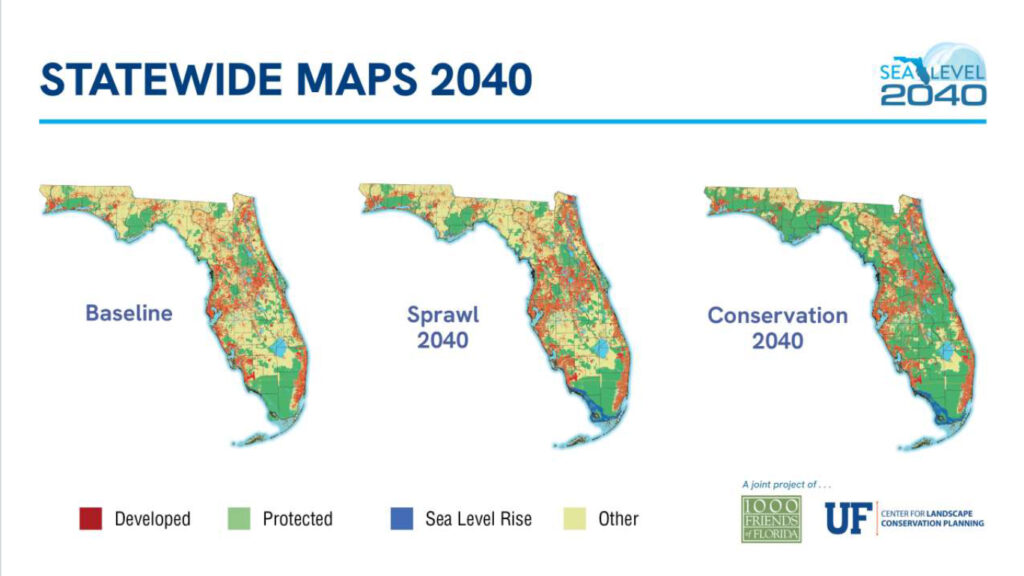By Vivian Young, 1000 Friends of Florida
Our changing climate is bringing increasing challenges to Florida, and “business as usual” no longer works. Hurricanes — from Charley, Irma, Michael, Ian to Nicole — and the recent “unprecedented” 1,000-year storm event in Fort Lauderdale show the pressing need for a better way forward in this era of more intense and frequent hurricanes and storm events.

These events flood and destroy homes and businesses, damage public infrastructure, cause serious beach erosion, contaminate drinking water, harm local ecosystems and much more. They come with serious and sometimes lifelong financial and emotional costs for those impacted who must rebuild their lives — or mourn the loss of loved ones. They also have a high price tag for taxpayers, who must cover the costs associated with repairing or replacing damaged public infrastructure and pay higher insurance rates to subsidize development in inappropriate locations.
In addition to catastrophic events, Florida must also address the impacts of steadily rising seas. The University of Florida Center for Landscape Conservation Planning and 1,000 Friends of Florida recently released the GIS-based study Florida’s Rising Seas: Mapping Our Future. In a nutshell, between now and 2070, Florida could add more than 12 million residents and lose 190 acres of land a day to development. Compounding this, Florida could lose another 92 acres of land a day (totaling 1.7 million acres) to sea-level rise, resulting in close to a million Floridians needing to relocate, including about 200,000 residents in the coastal counties around Tampa Bay.

While 2070 may seem a long way off, the study also reveals that by 2040 Florida could grow by almost 5 million residents and lose a million acres of land to sea-level rise, forcing the relocation of more than 200,000 residents, including about 42,000 residents in the Tampa Bay region. This is less than two decades away and a shorter timeframe than a 30-year mortgage. It is also within the typical 20-year planning horizon used by many communities in our state.
Florida’s Rising Seas provides guidance on planning for a more sustainable future. First, Florida must commit meaningful and consistent funding to conserve the state’s priority natural and agricultural lands, including those in the Florida Wildlife Corridor. If Florida would commit $500 million a year over the next 48 years it could protect 6 million acres of land, roughly three-quarters of the unprotected acreage in the Florida Wildlife Corridor. With Florida standing to lose close to 70,000 acres of land a year to development, it is important to prioritize which lands are most essential — including lands needed to buffer developed areas from the impacts of sea-level rise and storms — and which could be first lost to development.
Second, Florida must encourage more sustainable development patterns. This means avoiding development and redevelopment on sensitive lands in coastal areas and floodplains and promoting more compact development patterns to help slow the loss of Florida’s natural and agricultural lands.

Third, Florida — and its communities — also must take a page from the business community and incorporate fiscal responsibility into the planning process. Insurance and mortgage companies routinely evaluate whether investing in development in vulnerable areas is a sound business decision and increasingly — and understandably — are reaching the decision it is not. State and local government should likewise “run the numbers” before approving new development and redevelopment.
Our state and local leaders need to have the vision and political courage to protect sensitive natural and agricultural lands, support sound and fiscally responsible community planning, and make wiser decisions regarding the location, density and timing of new development and redevelopment moving forward. The time to start is now.
Vivian Young is communications director for 1000 Friends of Florida and serves on the team for the Florida’s Rising Seas Project (1000fof.org/sealevel2040). A statewide not-for-profit organization, 1000 Friends builds better communities and saves special places to create a more sustainable future for Florida.
This opinion piece was originally published by the Tampa Bay Times, which is a media partner of The Invading Sea.
If you are interested in submitting an opinion piece to The Invading Sea, email Editor Nathan Crabbe at ncrabbe@fau.edu. Sign up for The Invading Sea newsletter by visiting here.



